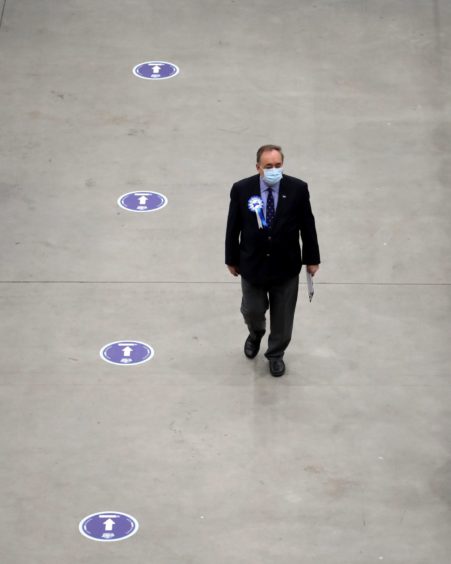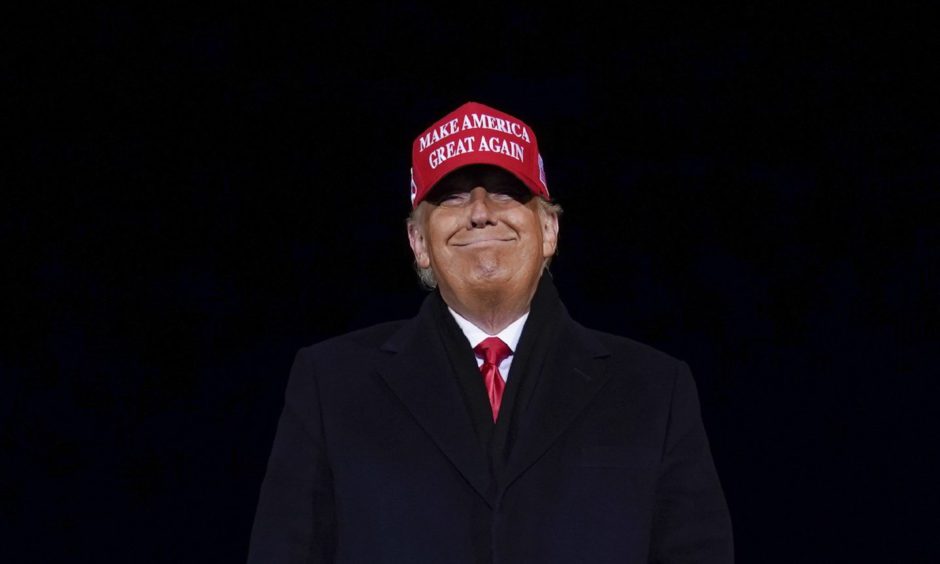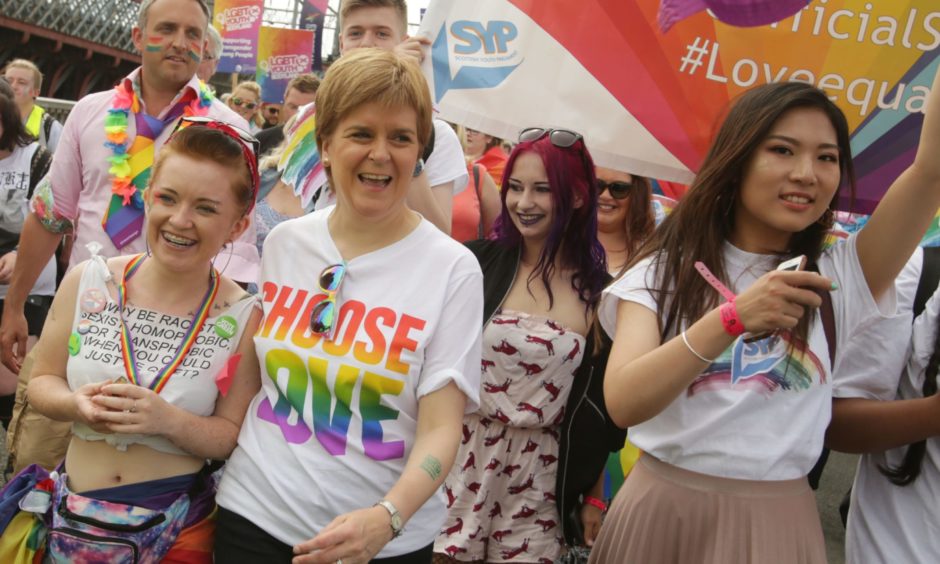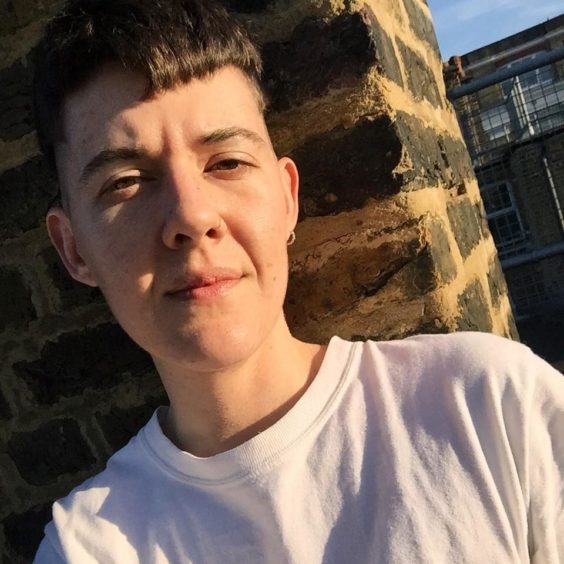In a story in The Courier last week, Alex Salmond responded to a claim that he had made inflammatory remarks about transgender people by saying what had been printed wasn’t “an exact quotation”.
The comments were published in a May 4 column written by Jim Spence, a veteran BBC broadcaster, about Scotland’s future as the country readied itself to go to the polls.
Salmond quickly insisted he didn’t say that the SNP has been “captured by around a hundred loony tune transgender warriors” – rather, he had been “referring to so-called ‘key board warriors’, unjustly labelling other people as transphobic”.
The most significant thing about this clarification is that it didn’t include an apology for using transgender people as a political pawn to cast aspersions on the party he used to lead.
Salmond is sadly far from alone in this – using transgender lives to signal to your supporters where you stand on the “woke cancel-culture brigade” is a common tactic among those trying to mobilise their base.
Former US president Donald Trump and Hungarian prime minister Viktor Orban have both done the same, followed by using their powers to introduce or support anti-trans laws.
However, since he made his comments, Salmond and his Alba party have failed to gain a single seat in the elections.
Transgender people are thankfully not at risk of anti-trans Alba policies any time soon – though its pledge to support “women’s sex-based rights”, while superficially harmless, is a transphobic dogwhistle that brands transgender women “men” and is part of a wider movement to roll back transgender rights and erase transgender and non-binary people from society.
In his column, Jim Spence pointed out that many people who left the SNP to join the Alba party share Salmond’s view that the dream of independence has been “abandoned” by the SNP in favour of “minority interests” like “trans issues”.
With visibility comes hostility
Transgender people are indeed a minority group; most estimates suggest we make up less than one per cent of the population.
As we become more visible in Western society – partly thanks to the internet, and to increasing tolerance and acceptance of gender diversity – hostility towards us has also increased.
In Scotland, hate crimes against transgender people have doubled in the past five years.
Negative statements about transgender people from politicians and in the media have become increasingly commonplace, spurred on by lobbying from newly formed transphobic campaign groups.
Transgender people are now under such high rates of physical, sexual and verbal attack that more than half of us feel less able to leave our homes
While some of this is obviously antagonistic towards transgender people, some of it is more subtle – like the difference Salmond clarified in his own comments.
Meanwhile, transgender people are now under such high rates of physical, sexual and verbal attack that more than half of us feel less able to leave our homes, research by LGBT+ anti-violence charity Galop found in 2020.
A staggering 93% of transgender and non-binary people told Galop they had experienced transphobia in the last year.
Abuse takes a personal toll
The links between politicians talking in derogatory terms about a minority group and an increase in physical violence to people visibly part of that group has been observed time and time again.
What has also been confirmed is the horrific impact reading negative media coverage about transgender people has on transgender people ourselves.
Research from 2020, published in the LGBT Health journal, found that 97.6% of participants reported seeing negative depictions of transgender people in the media in the past 12 months – 93.9% seeing anti-trans coverage in print, 93.8% on television and 83.1% in advertising.
And this exposure to anti-transgender messaging was found to correlate strongly with reports of depression, anxiety and psychological distress in transgender and non-binary people.
Point scoring inflames prejudice
Remarks like Salmond’s – whether it was “loony tune” or “keyboard” transgender warriors that he said were ruining the Scottish independence movement – pile fuel on an already burning fire.
Transgender people do not need reminding that our lives are frequently used by politicians to score points.
We see the media coverage, and we see the impacts of their comments translated into physical violence, prejudice, and discrimination in our lives every day.
In an article expanding on his clarification, Salmond said people should be free to express their views.
He also demanded that people should be able to say whatever they like about transgender people without being called transphobic.
What he didn’t mention is that the joy of free speech is it works both ways: while many people wish to, and do, express their views about transgender lives on the internet, transgender people are also free to call those views transphobic if that is how we see them.
If you don’t want to be called a bigot, perhaps try less bigotry?
Vic Parsons is gender & identity reporter at LGBT+ media outlet PinkNews
PinkNews is hosting the inaugural Trans Summit next week, a three day event running from May 18-20 focusing on trans issues in the workplace.




